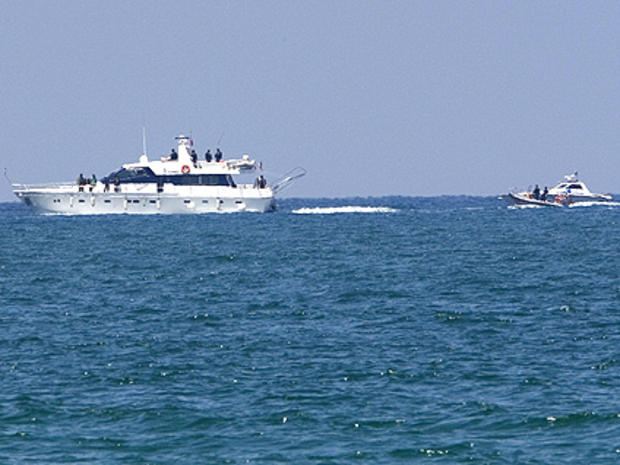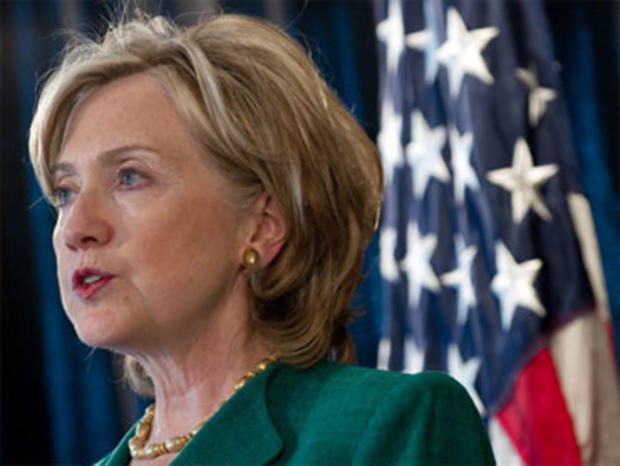U.S. Tries to Move Beyond the Gaza Flotilla Incident
Anyway you look at it the bottom line for the Obama administration is that this week's so-called "Gaza flotilla" incident is one more problem it did not need but nonetheless has to deal with.
If only the flotilla had followed existing procedures Israeli officials claim its humanitarian aid could have been delivered to Gaza without a confrontation. If Israeli defense officials had better planned their military operation against the flotilla's ships perhaps the incident would have been largely ignored the world's media.
But of course those behind the operation had other plans including an overt effort the break a three year old naval blockade which Israel has imposed on Gaza. A senior State Department official told reporters "the leaders of the flotilla sought a confrontation and, unfortunately, got one."
Magnus Norell, a Sweden-based analyst writing for The Washington Institute for Near East Policy, notes the main organizer of the flotilla, the Turkish Humanitarian Relief Foundation (IHH), is "closely connected with Hamas and has a long history of advocating armed struggle, including terrorism, against Israel." Norell also cites ties between the IHH and al Qaeda although State Department officials say they cannot link the two organizations.
Even so, Israel was left to explain its handling of the operation which resulted in nine deaths. Prime Minister Benyamin Netanyahu, who had planned to be at the White House earlier this week had to return home to handle the crisis. Netanyahu took the offensive and, while offering an apology for the loss of life, said "This wasn't a love boat. This was a hate boat."
Washington's diplomatic calendar was supposed to be devoted to getting another sanctions resolution against Iran passed in the U.N. Security Council and having Special Envoy George Mitchell become fully engaged in separate talks with Israeli and Palestinian leaders.
Instead, Secretary of State Hillary Clinton spent much of her meeting time yesterday with Turkish Foreign Minister Ahmet Davutoglu trying to calm the waters with her NATO ally over the flotilla incident. Only then did she attempt to convince Turkey, which now has a seat on the Security Council, to vote with Washington on the Iran sanctions issue.
Secretary Clinton was caught in the uncomfortable position between defending Israel's right to provide for its own security and looking for support from Ankara on the Iran sanctions resolution. Perhaps fearing he would use some over-heated rhetoric on camera Clinton's staff cancelled a scheduled photo opportunity with her Turkish colleague who had told reporters earlier that "psychologically, this attack is like 9/11 for Turkey."
Only later, walking a fine line, did she address the flotilla controversy. "I think the situation from our perspective is very difficult and requires careful, thoughtful responses from all concerned," Clinton told reporters.
She gave strong backing to a U N "call for a prompt, impartial, credible and transparent investigation." While giving the nod to Israel conducting an investigation "that meets those criteria," Clinton also left the door open for international participation, something the Israelis have not yet signaled they are willing to accept.
Clinton also labeled the situation in Gaza "unsustainable and unacceptable" and she pledged to work not only for humanitarian goods such as food and medicine to be allowed into Gaza but she pointedly said reconstruction and building supplies should also be allowed in, something the Israelis have been reluctant to approve because Hamas has been known to use such supplies for military purposes.
James Zogby of the Arab American Institute called the administration's position on "Israel's outrageous assault on humanitarian ships headed for Gaza, while not surprising, is nevertheless unacceptable."
Into this combustible mix went negotiator Mitchell who attended a Palestinian economic conference and then held discussions with Palestinian President Mahmoud Abbas. Mitchell also expects to see Netanyahu on this trip.
Just how much the Gaza flotilla incident will have set back negotiations is something we will not be able to gauge for some time. At least Abbas did not back out of his scheduled meeting with the Obama administration's envoy. Will Turkey's vote on the Iran sanctions resolution be affected by the events this week? Could Washington have counted on its vote even without the incident?
The old saying goes that out of every crisis comes an opportunity. Perhaps. But even a writer of fiction would be hard pressed to include all the twists and turns that are rocking the administration's Middle East policymaking efforts.
More on the Israeli Raid:
Flotilla Activists Returning to Greece, Turkey
Washington Unplugged: Israel's "Diplomatic Mess of Mammoth Proportions"
7 Things You May Not Know About the Raid
Washington Unplugged: Israeli U.S. Ambassador on Raid
Israel Raises Concerns Over Relationship with Turkey
Free Gaza Movement Vows Future Missions
Photos: Protests against Flotilla Raid
Charles Wolfson is CBS News' State Department reporter.

